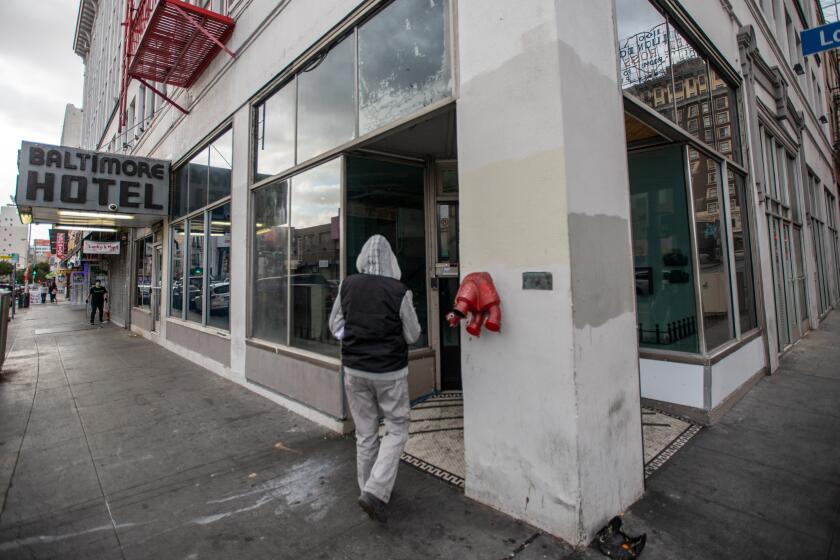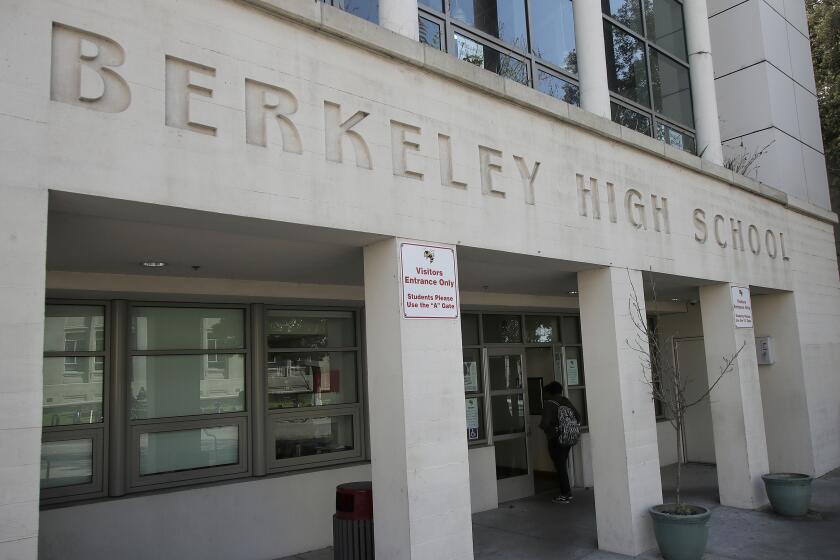Lawmakers must pass redistricting ballot measure this year
If Gov. Arnold Schwarzenegger and the Legislature get anything else done this year, it most likely will be -- and should be -- political redistricting reform.
Redistricting reform is the path to logical term-limit flexibility. And both are badly needed in Sacramento, as the recent budget fiasco showed.
Republicans long have crusaded for redistricting reform: zapping the Democratic-dominated Legislature’s power to draw its own districts. Now, the poster boys for why that’s a just cause turn out to be Senate Republicans.
They may have reflected their gerrymandered, largely conservative districts in blocking budget passage for a month. But the Capitol could benefit from a more pragmatic, moderate strain of lawmaker.
Legislators particularly abused the power to shape their own districts in 2001 when Democrats and Republicans conspired to draw legislative and congressional lines that protected the party status quo. In the last three elections, only four seats have changed parties in 495 races.
“There was more turnover in the Hapsburg monarchy,” Schwarzenegger likes to say.
An independent redistricting, he argued at an L.A. news conference last week, would make seats more competitive and “guarantee that our elected leaders are more responsive to the voters.”
“Some people, of course,” he continued, “don’t like competition because that means you have to work much harder. And also they don’t like the thought of maybe losing.”
Democrats long have resisted turning redistricting over to an independent commission. That’s understandable, since they’ve been the party in power for the last five post-census redrawings of districts.
But for strategic reasons involving term limits, Democrats now are reluctantly accepting the notion of surrendering their redistricting power. Publicly, they’re pointing to the Senate GOP’s budget blockade as a rationale.
“This is an example of why we need to reevaluate the way district boundaries are drawn -- so they don’t benefit the extremists in both parties,” Assembly Speaker Fabian Nuñez (D-Los Angeles) told reporters last week. “I want [legislators] whose points of view are reflective of all California. And I think objective, nonpartisan redistricting that’s one step removed from the Legislature might get us there.”
That’s all true. But Nuñez’s primary motivation is to secure bipartisan -- mainly Schwarzenegger’s -- support for term-limit flexibility.
A Nuñez-backed initiative that has qualified for the Feb. 5 ballot would reduce the total years anyone could spend in the Legislature from 14 to 12, but allow the entire time to be served in one house. Currently, there’s a six-year limit in the Assembly and eight-year cap in the Senate.
The change would benefit the public by allowing each house to retain experienced members and develop stronger leaders. Plus, it would reduce the distractive musical-chairs games that lawmakers play to position themselves for their next elective office.
But the term-limits change also would benefit many current legislators, including Nuñez, who otherwise would be booted next year.
It’s in both Democratic and Republican interests to pass a redistricting measure and place it on the Feb. 5 ballot. That’s the only way Schwarzenegger will endorse the term-limits initiative. A successful redistricting overhaul would allow him to salvage some piece of his failed 2005 “reform” package that tarnished his image.
“A lot of things are trade-offs,” the governor told reporters. “Whatever it takes.”
Last month, the stars seemed aligned for healthcare reform. But that was before the budget brawl. Now the legislative mood is morose. There’s bitterness and mistrust. And everybody is far apart on healthcare.
It’s unlikely the politicians can fashion a comprehensive plan before the Legislature shuts down for the year in three weeks. The governor could call the lawmakers back into special session, but that rarely works. Legislators usually just roll their eyes and yawn.
Healthcare and dam-building -- another Schwarzenegger priority -- can be delayed until next year. But redistricting must be done now, before the Feb. 5 voting on term limits.
“The budget thing absolutely argues for redistricting reform,” asserts Tony Quinn, co-editor of the Target Book, which charts legislative races. “These people don’t know to negotiate because there’s no pressure from voters.”
Look at the numbers:
Of the 15 GOP senators, 13 represent districts that are solidly Republican in voter registration: 47% to Democrats’ 32% on average. By contrast, the statewide registration favors Democrats: 43% to 34%.
That means those Republican senators don’t have to pay any attention to Democratic voters. In fact, they’d better not if they want to avoid a Republican primary fight.
One of the two other Republicans, Abel Maldonado of Santa Maria, represents a sharply divided district: 38% Republican, 40% Democrat. He’s up for reelection next year and had to heed his voters, not his party caucus. He worried about local businesses and health clinics being stiffed by the state. So, weeks ago, he broke from the caucus and voted for the budget.
The other Senate Republican with a competitive district is Jeff Denham, who represents an area stretching from Merced to Salinas. It favors Democrats 46% to 38%. But he doesn’t have to concern himself with those voters again. He’s termed out and moving to the right, plotting a run for the GOP lieutenant governor nomination in 2010. Denham was one of the most hard-core budget blockers.
Not everyone agrees that less gerrymandering would elect more moderate legislators. Many point out that lawmakers still must be nominated by their parties.
“If you want more moderate candidates, more moderates need to go vote,” reasons Sen. Jim Battin (R-La Quinta).
But independent redistricting would lead to more competitive elections in November. More legislators would be forced to listen to voters of both parties. They’d be compelled to compromise in the Capitol.
Considering what’s doable in the next three weeks, the most important is redistricting reform. And, lest we forget, Democratic leaders promised it two years ago.
george.skelton@latimes.com
More to Read
Get the L.A. Times Politics newsletter
Deeply reported insights into legislation, politics and policy from Sacramento, Washington and beyond. In your inbox three times per week.
You may occasionally receive promotional content from the Los Angeles Times.







